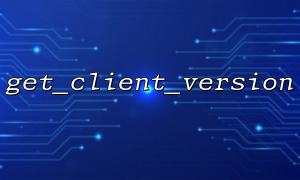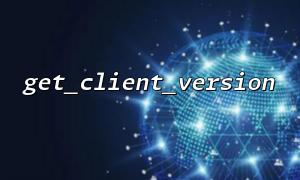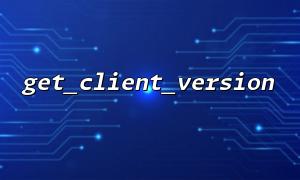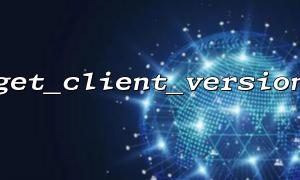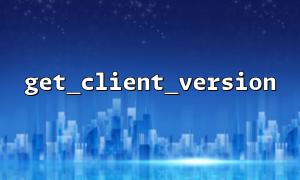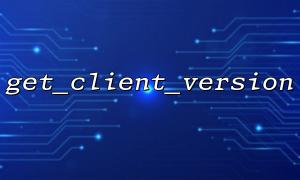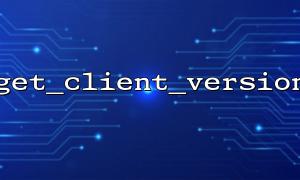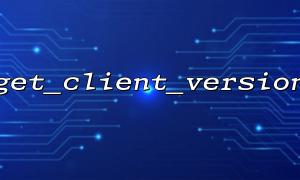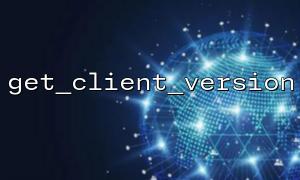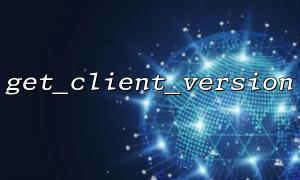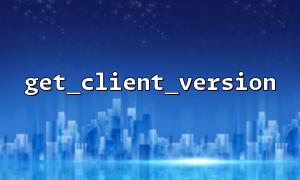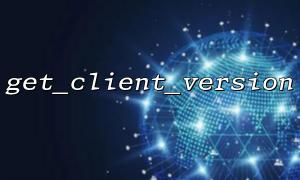In a multi-tenant system architecture, different tenants tend to have different business needs and may even use different versions of the system. This brings a challenge:
This article will introduce a common and effective way to implement the isolation of the tenant version through the get_client_version function. We will use PHP to demonstrate the specific implementation method and give code examples based on actual scenarios.
Imagine a SaaS platform where multiple enterprise customers (tenants) share a system, but due to customization needs, tenant A uses the settlement logic of V1 version, while tenant B has been upgraded to V2. At this time, the system must be able to identify the corresponding version of the current tenant at runtime and load the matching logical code.
This is where the get_client_version function can show its skills.
We first define a function to determine the version it is used by the tenant ID or domain name.
function get_client_version($tenantId) {
// Here you can use the tenantIDGet version number from database or configuration file
// To make simplified,Write some simulation data here
$tenantVersions = [
'tenant_a' => 'v1',
'tenant_b' => 'v2',
'tenant_c' => 'v1',
];
return $tenantVersions[$tenantId] ?? 'default';
}
By calling the get_client_version function, you can easily switch the logical module according to the version:
$tenantId = $_GET['tenant_id'] ?? 'default';
$version = get_client_version($tenantId);
switch ($version) {
case 'v1':
require_once 'modules/v1/payment.php';
$result = process_payment_v1();
break;
case 'v2':
require_once 'modules/v2/payment.php';
$result = process_payment_v2();
break;
default:
http_response_code(400);
echo json_encode(['error' => 'Unsupported tenant version.']);
exit;
}
// Return result
header('Content-Type: application/json');
echo json_encode($result);
In a multi-tenant architecture, the system's URL usually contains a tenant identity, for example:
$url = "https://gitbox.net/api/{$tenantId}/orders";
When you call APIs between different tenants, you can also make routing or parameter adaptation processing based on the version:
function get_api_url($tenantId) {
$version = get_client_version($tenantId);
if ($version === 'v1') {
return "https://gitbox.net/api/v1/{$tenantId}/orders";
} elseif ($version === 'v2') {
return "https://gitbox.net/api/v2/{$tenantId}/orders";
}
return "https://gitbox.net/api/default/{$tenantId}/orders";
}
Through the get_client_version function, we implement dynamic mapping between the tenant and its version, so that the system can flexibly load the corresponding version of business logic. This method has the following advantages:
Strong scalability : supports more versions of extensions;
Easy to maintain : the logic is layered and clear, and modifying the logic of a single version does not affect other tenants;
Good decoupling : Each version of the module is independent of each other, which is easy to test and deploy.
This strategy is particularly important in SaaS projects. If you are building a multi-tenant system, you might as well refer to this approach!

